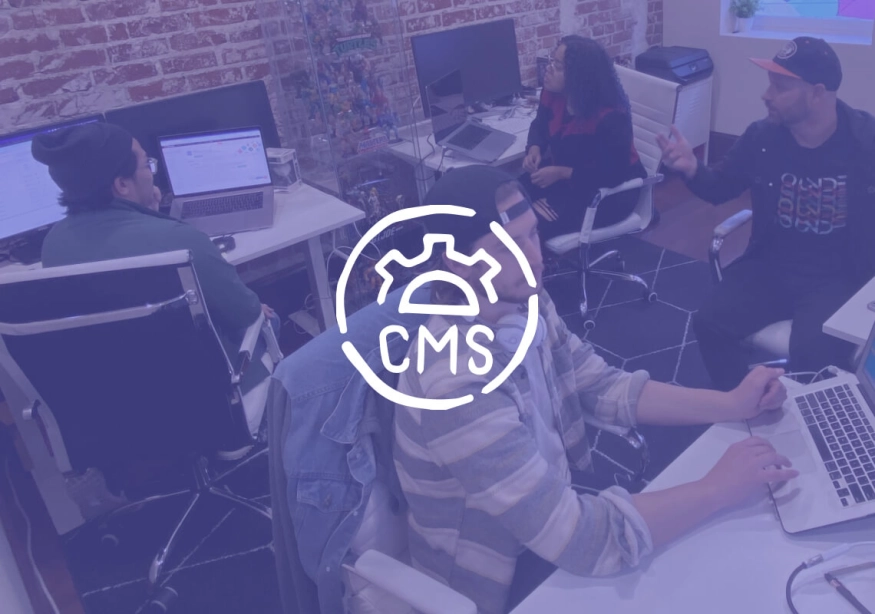What is WordPress customization?
WordPress customization involves tailoring the WordPress platform to meet specific business requirements. This can range from developing custom themes and plugins to modifying core functionalities. The objective is to create a unique, efficient, and scalable website that stands out in the digital landscape.
Pros and cons of customization
Pros:
Uniqueness: Custom development ensures your website is distinct and tailored to your brand identity.
Scalability: Custom solutions can grow with your business, ensuring long-term sustainability.
Performance Optimization: Tailored solutions mean faster load times and a better user experience.
Cons:
Cost: Custom development can be more expensive than using pre-made themes and plugins.
Time-Consuming: The development process can take longer, as everything is built from scratch.
Maintenance: Requires ongoing maintenance by skilled professionals.
When to consider customization for your WordPress site
In the dynamic world of online business, deciding when to opt for custom WordPress development is crucial. This decision can significantly impact your brand identity, operational efficiency, and overall digital security. Let's explore the key situations where customization becomes not just an option, but a necessity.
Unique branding needs
The digital presence of your brand is often the first interaction customers have with your business. Custom WordPress development should be considered when pre-existing themes and designs fail to capture the essence of your brand. Tailored designs and functionalities not only reinforce your brand identity but also ensure that your website resonates with your target audience. It's about creating a unique digital experience that aligns with your brand’s values, aesthetics, and messaging, thereby setting you apart from competitors.
Specific functional requirements
Every business has its unique operational needs and customer engagement strategies. Customization becomes essential when your business demands specific functionalities that are not available in standard themes or plugins. This could include custom forms, unique user interaction interfaces, or specialized data management systems. Custom WordPress development allows you to incorporate these unique features seamlessly, enhancing the functionality of your site and improving user experience.
Scaling up
As your business expands, so do your website's requirements. The need for customization becomes evident when you're scaling up your operations. Standard WordPress solutions might not be equipped to handle increased traffic or the complex functionalities needed for a growing business. Custom WordPress development allows for scalability, ensuring that your website can grow and adapt alongside your business. This scalability is vital for maintaining performance, managing larger volumes of traffic, and incorporating additional features and integrations as your business evolves.
Security concerns
In an age where cyber threats are prevalent, securing your website is paramount. Custom WordPress development should be considered when enhanced security features are needed. Customization allows for the implementation of advanced security measures tailored to your specific business needs. This includes custom login pages, advanced encryption methods, and tailored backup solutions. By opting for custom development, you can ensure that your website has a robust defense against potential cyber attacks, protecting both your business data and your customers’ information.
Ideal candidates for custom WordPress development
Custom WordPress development is not a one-size-fits-all solution. It's particularly beneficial for certain types of companies that have specific needs and goals. Let’s delve deeper into the types of businesses that would benefit most from custom WordPress solutions:
Large enterprises
Large enterprises often face complex challenges in digital representation and need a platform that can handle their diverse requirements. Custom WordPress development is ideal for these entities due to:
Complex functionalities: Large businesses often require complex integrations with other systems, such as CRM, ERP, and custom databases.
High traffic management: Custom development can optimize websites to handle large volumes of traffic without compromising performance.
Brand representation: Large companies need a unique digital footprint that reflects their brand and values, which custom development can provide.
Security and compliance: Custom solutions can ensure higher security standards and compliance with industry-specific regulations.
E-Commerce sites
E-commerce platforms have unique needs that often cannot be fully met by pre-existing WordPress themes or plugins. Custom development is crucial for:
Unique shopping experiences: Tailoring user experience to match the brand’s identity and customer expectations.
Integration of payment systems: Securely integrating multiple payment gateways and custom checkout processes.
Inventory and sales management: Custom solutions for managing complex inventory and sales operations.
Personalization: Offering personalized shopping experiences based on user behavior and preferences.
Niche businesses
Businesses with highly specialized operations or in niche markets benefit significantly from custom WordPress development. This includes:
Unique functional needs: Custom plugins or functionalities that cater to specific industry needs, which are not available off-the-shelf.
Targeted user experience: Designing a user experience that resonates with a specific audience demographic.
Specialized content management: Developing custom content management workflows tailored to the business’s unique operations.
Adaptability: The ability to quickly adapt and add features as the niche market evolves.
Startups and innovators
Startups and businesses focused on innovation also find custom WordPress development advantageous:
Rapid growth adaptation: As startups grow, their website needs to scale and adapt quickly. Custom solutions provide this flexibility.
Budget management: While custom development can be more expensive upfront, it offers long-term savings through scalability and reduced need for frequent overhauls.
Market differentiation: Startups often need to stand out in a crowded market, and a unique website can be a key differentiator.
Service-based businesses
Service-based businesses, such as consulting firms, law offices, and healthcare providers, also gain from custom WordPress development:
Appointment booking systems: Integration of custom appointment booking and scheduling systems.
Client portals: Secure client portals for personalized service experiences.
Service customization: Tailoring the site to showcase various services and expertise in a user-friendly manner.
Custom WordPress development is ideal for businesses looking for a unique, scalable, and feature-rich website that stands out from the competition. Whether it’s a large enterprise, an e-commerce platform, a niche business, a rapidly growing startup, or a service-based company, custom WordPress development can be tailored to meet the specific needs of these diverse business types.
The custom WordPress development process: Your comprehensive checklist
Embarking on the journey of custom WordPress development can be transformative for your business, but it requires meticulous planning and execution. Here's a detailed checklist to guide you through each step of the process, ensuring a smooth and successful customization experience.
Step 1: Define requirements
Identify business objectives: Clearly outline what you want to achieve with your website.
Assess website needs: Determine the specific functionalities, design elements, and user experience features you need.
Establish budget and timeline: Decide on your budget for the project and a realistic timeline for completion.
Gather stakeholder input: Involve key stakeholders in your organization to gather diverse insights and needs.
Document your vision: Create a comprehensive brief detailing all your requirements, goals, and expectations.
Step 2: Choose the right development partner
Research potential partners: Look for agencies with expertise in custom WordPress development, like Hounder.
Evaluate portfolios: Review the past work of potential partners to assess their capabilities and style.
Check references and reviews: Seek feedback from their previous clients to gauge their reliability and quality of work.
Discuss your project brief: Present your requirements to potential partners and discuss their approach.
Compare proposals: Evaluate the proposals from different agencies based on their strategy, cost, and timeline.
Step 3: Design and development
Finalize design concepts: Collaborate with your development team to finalize design mock-ups and wireframes.
Approve development plan: Review and approve the development plan detailing the technical approach, platforms, and tools.
Monitor progress: Stay engaged with the development process and regularly check in for updates.
Provide feedback: Offer feedback at various stages of development to ensure alignment with your vision.
Step 4: Testing and deployment
Conduct user testing: Test the website with a sample of your target audience for feedback on usability.
Perform technical testing: Ensure that all technical aspects, like load time and mobile responsiveness, are thoroughly tested.
Validate security measures: Check the security features to protect against potential cyber threats.
Approve final version: Review and approve the final version of the website before launch.
Deploy the website: Coordinate with your development partner for a smooth launch of your new website.
Step 5: Ongoing support and maintenance
Set up a maintenance plan: Establish a regular maintenance schedule with your development partner.
Implement updates: Regularly update your WordPress core, themes, and plugins for optimal performance.
Monitor website performance: Regularly check your website’s performance and make adjustments as needed.
Stay informed on trends: Keep up with the latest web trends and technologies to keep your site relevant.
Plan for future enhancements: Continuously plan for improvements and enhancements to keep your website evolving.
By following this checklist, you can ensure that your custom WordPress development process is thorough, effective, and aligned with your business goals. Remember, a successful custom website is not just about what you launch with, but how you grow and evolve it over time.



